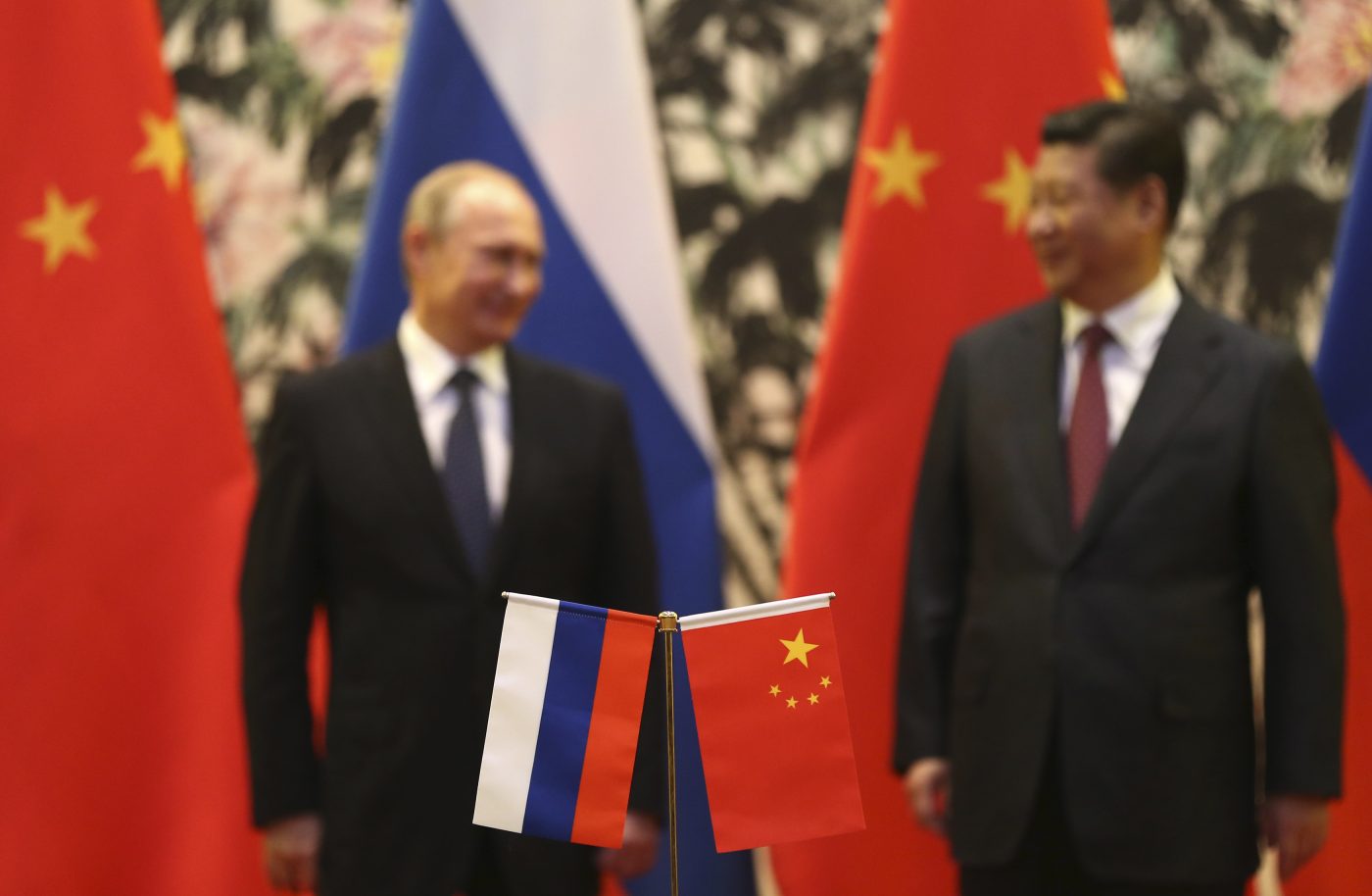Edward Lucas

The shameful dithering in Berlin, Washington DC, and other capitals impose a huge human and physical cost on Ukraine—and create great risks for everyone. Russia’s war machine will not stop until it is beaten. Either the West wins with Ukraine’s help, or we will be fighting Russia somewhere else later, on far worse terms.
That is daunting enough. But the threat from the Chinese Communist Party (CCP) is far greater. Russia chiefly seeks to rebuild a sphere of influence in its neighborhood. It can also stoke trouble far afield, notably in sub-Saharan Africa. But unlike its predecessor it does not aspire to global domination. The Soviet Union’s perennial insecurities, delusions of grandeur, and desire for recognition fuelled its quest for global power (outlined in a forthcoming book by the historian Sergey Radchenko). For Russia, with 140 million people and an Italy-sized GDP ($2 trillion), such ambitions would be fanciful.
The CCP leadership, like the Kremlin, wants more than anything else to stay in power. It deals ferociously and systematically with internal threats to its rule, with a surveillance state of unparalleled capability. Like the Kremlin, it also seeks to deal with external threats. But it does so on a far greater scale. Russia has had some modest successes in weaponizing its diasporas, notably in Germany and France. But the CCP, through its United Front Work Department, aims to control all diaspora activity everywhere. Moreover, through its enormous hauls of personal information, sifted and sorted by artificial intelligence to highlight patterns and anomalies, China has gained extraordinary insights into Western societies. No national government agency in a democratic country could do this with our personal data: the political, legal, and parliamentary constraints are too great. But the CCP can and does.
The CCP also targets decision-making inside and outside government to a far greater extent than the Kremlin does. True, Russia runs disinformation campaigns, seeks to aggravate social and other divisions, backs favored politicians and parties and seeks to dissuade Western countries from supporting Ukraine. But it does not try to influence the way universities teach and research Russian issues, browbeat publishing houses to make them shun topics it disapproves of, or seek to control displays of public art. The CCP does all this and more. It can do so because of its size: 1.4 billion people and an $18 trillion GDP: the world’s second-largest economy.
China is also in a separate category when it comes to scientific and technological competition with the West (including the theft of intellectual property). It is hard to think of any field where Russia is a world-class scientific power. Nor does it have a lock on any significant part of the global supply chain. China, by contrast, is bidding for supremacy in AI, quantum computing, materials science, nanotechnology, and many other disciplines. Its grip on battery technology, critical minerals, solar panels, and electric cars (to take just a few examples) is all but taken for granted. Cyberalarms are ringing too: the Volt Typhoon hacking group has penetrated systems running Western critical infrastructure, with potentially catastrophic consequences.
To deal with these threats from the Chinese party-state, the West will need to dig deep. It must develop political unity across the Atlantic and the Pacific, bi-partisan, long-term decision-making, a far higher risk appetite, and a strong security culture across government and society.
Political muscles develop with practice. Dealing with Kremlin imperialism will be the best way to generate these capabilities. In short, far from diverting attention from the Chinese threat, Ukraine complements and enhances the much greater efforts needed to deal with the party-state in Beijing.
No comments:
Post a Comment